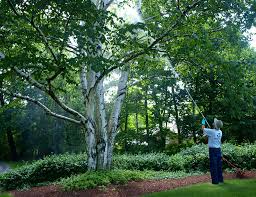Manasquan Tree Insect Disease
Manasquan Tree Insect Disease

Tree Insect Disease Manasquan Company
Frontier Tree Company
Phone:
732.671.0372
Lawn insects can be both bothersome and destructive. There are several species of insects that live in the turf, but only a few can cause severe damage to your lawn.
Tree Insect Disease Monmouth County
Our yearly preventative insecticide program consists of two applications, each providing a barrier of 6-month control from these harmful infestations.
Price Quote Tree Insect Disease Manasquan
White Grubs
White Grubs are the larva of beetles. They feed below the soil surface on the roots and underground stems of all commonly used turfgrass and are capable of eliminating the entire root system of the plant.
Residential & Commercial Tree Insect Disease Near Me Manasquan
The first evidence of injury is localized patch of pale, discolored and dying grass displaying symptoms of moisture stress. Damaged areas are small at first but rapidly enlarge as the grubs grow and expand their feeding range.
Best Manasquan Manasquan
The turf in such areas will have a spongy feel under foot and can be easily lifted from the soil surface, or rolled like carpet, revealing the C-shape white grubs underneath.
Recent Client Service Area: 08736
Armyworms
Armyworms come from migrating armyworm moths that travel during the spring and early summer. During the caterpillar stage of their life cycle, these surface feeding insects can wreak havoc on the foliage of turf. When numerous, they will devour grasses down to the ground, causing circular bare areas. Armyworms feed day and night and can destroy a lawn in a matter of days. The name is derived from their feeding habits, eating everything in an area and once the food supply is exhausted the entire “army” will move in mass to the next available food source.
Save Tree From Insects & Disease Manasquan
Cutworms
The term Cutworm is used for various species of moth larva and applies mainly to their feeding behavior. These caterpillars get their name from their habit of “cutting” down the plant at ground level by chewing through the stem. While some will remain with the plant and graze on it, often times they move on after eating only a small amount and this wasteful mode of feeding results in excessive damage.
They are general feeders and will attack a wide range of grasses, weeds and vegetable plants. They typically sever the plant stem during the night and hide in the soil near the base of the plant during the day.
